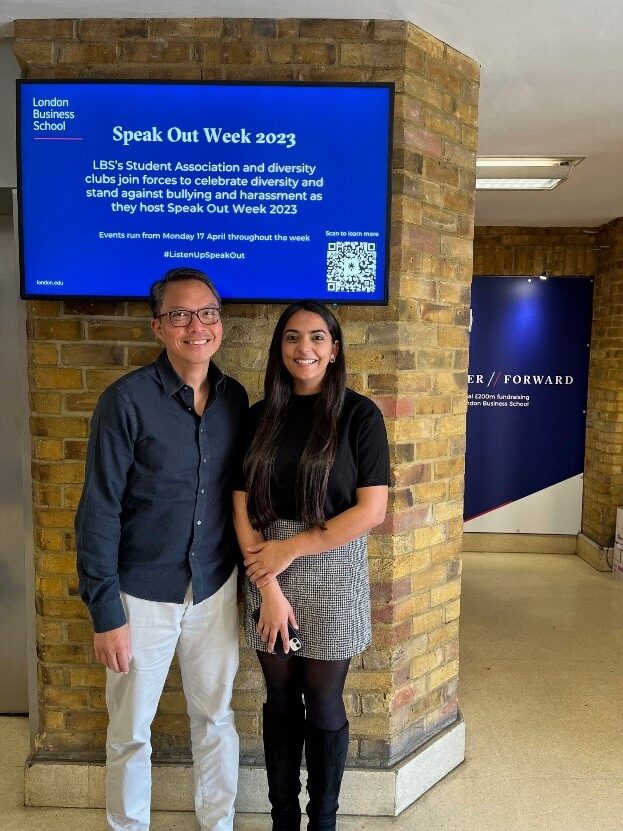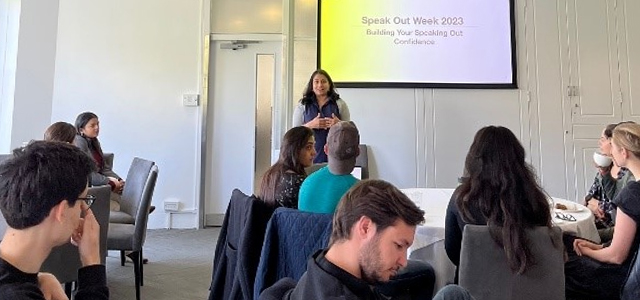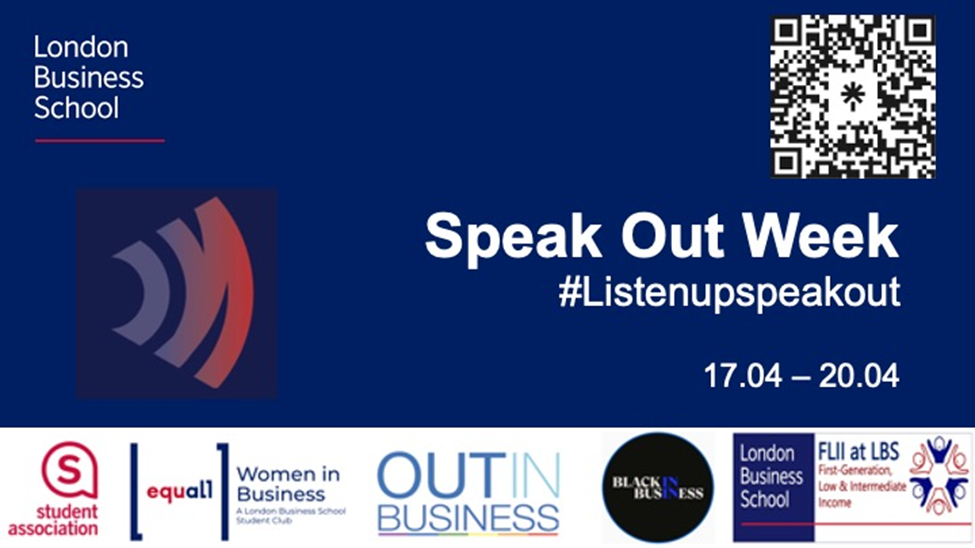By Arnold Longboy – Executive Director, Recruitment & Admissions at London Business School
At London Business School our aspiration in terms of Diversity, Inclusion, and Belonging (DIB) is to ensure that everyone is respected for who they are, has a voice, feels heard, and is part of our journey for change. We want everyone to belong and thrive within our community.
Recently, our students organized a week-long event called “Speak Out” which was established two years ago as a way to raise awareness of the challenges some of our community face with regard to harassment, bullying, or microaggressions. The week was organized by LBS’s Student Association in collaboration with our diversity, inclusion, and belonging (DIB) student clubs: Women in Business, Out in Business, Black in Business and First-Generation, Low & Intermediate Income.

The week kicked off with a masterclass led by LBS’s professor of organizational behaviour, Aneeta Rattan. Dr Rattan’s research focuses on how mindsets “can transform diversity in organisations, improve the sense of belonging and reduce experiences of bias from colleagues for racial minorities, women, and individuals who identify as LGBTQ+, disabled, or lower social class.” Building upon her thought leadership, she launched LBS’s first course on leading diversity within organisations – which has been a popular elective for the past two years.
Dr Rattan’s session set the tone for the week, leading a session to build confidence in addressing microaggressions and learning how to handle them. Drawing from her research and the content in her diversity course she highlighted why the “targeted group” and allies often hesitate to speak out against microaggressions. Starting off with why we often hold back was important to acknowledge as it provided specifics that we often wonder about after the fact. For the targeted group, i.e. the person who was impacted by the comment, power dynamics, concerns about social and professional backlash, doubts about the potential for change and uncertainty about what to say can hold them back. An ally witnessing the behaviour may also struggle with not knowing what to say and concerns about affecting their standing within the group. As challenging as it is to speak out, Professor Rattan made the case that by normalizing such behaviour, it can be perceived as a strength, encouraging more people to take action.
Acknowledging what holds us back is a critical first step. But then how to act on it? I think most agree it isn’t easy and the risk of potential career backlash is real. Dr Rattan revealed that speaking out is a quick cognitive process. First, our minds need to recognize the biased nature of the comment. Then, we perceive the situation as pressing or urgent, triggering the motivation to speak up at that moment. Next, we confirm within ourselves that we are the appropriate person to address the issue and overcome the perceived risks and reasons that hold us back. And finally, we need to know what to say.
How to say it? My first of two main takeaways: communicate in a calm way. If you need to, take a deep breath and large exhale before you start. And Dr Rattan’s other recommendation was to “call in” rather than “call out”. This approach involves addressing the behaviour in a non-confrontational manner with the aspiration of educating the person responsible. This creates a safe space to have such dialogue and to find a solution that is respectful and inclusive for all. (Woods & Ruscher 2010).
The first day of Speak Out week was a remarkable start and set the tone for the entire event. I eagerly look forward to next year’s Speak Out event and seeing the continued growth of our community into stronger, more informed, and inclusive leaders.
For more information about all our student clubs at LBS, please visit this link here.


